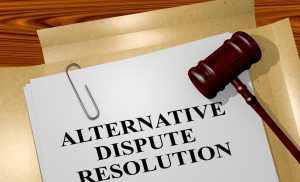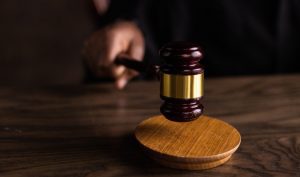The question of can a body corporate disconnect electricity and water of owners in arrears with their levies was very recently considered by Wilson, AJ of the Gauteng Local Division High Court in Lion Ridge Body Corporate v Alexander; Lion Ridge Body Corporate v Morata; Lion Ridge Body Corporate v Mukona and Another (17074/2022; 18106/2022; 19220/2022) [2022] ZAGPJHC 713 (21 September 2022).
Facts of the case
The applicant in each of these three matters is a body corporate called Lion Ridge. Each of the respondents is a member of Lion Ridge because they own a unit in the scheme. In each application, Lion Ridge claims each of the respondents owes in arrear levies, and water and electricity charges:
- Ms. Alexander: Lion Ridge seeks payment of R44 141.23.
- Ms. Morata: Lion Ridge seeks payment of R195 728.87.
- Mr. Mukona and Ms. Makhanya: Lion Ridge seeks payment of R180 186.10.
In addition to judgment in these amounts, Lion Ridge requested an order disconnecting the electricity supplied to each of the respondents’ units, and an order limiting the water supplied to each unit to not more than six kilolitres per month, until the judgment amounts are paid in full. Lion Ridge also requested an order declaring the respondents liable for the cost of disconnecting, limiting, and, if necessary, reconnecting each of the respondents’ water and electricity supplies.
Applicant’s arguments
Lion Ridge relied on sections 2(5), 4(h), and 4(i) of the Sectional Titles Schemes Management Act 8 of 2011 (the “STSM Act”).
- Section 2(5) of the STSM Act states that Lion Ridge is “responsible for the enforcement of the rules and for the control, administration, and management of the common property for the benefit of all owners”.
- Section 4(h) of the STSM Act empowers Lion Ridge to “enter into an agreement with any owner or occupier of a section for the provision of amenities or services by the body corporate to such section or to the owner or occupier thereof”.
- Section 4(i) of the STSM Act allows Lion Ridge “to do all things reasonably necessary for the enforcement of the rules and for the management and administration of the common property”.
Lion Ridge argued that in exercising its powers under section 4(h) of the STSM Act, it entered into an agreement with the respondents for the provision of amenities and services to the respondents’ units. By virtue of its powers under section 4(i) of the STSM Act, Lion Ridge claimed the right to take judgment against the respondents, and to limit or disconnect the utilities supplied to the respondents’ units.
Judgment
Collection of outstanding levies
The Judge stated that Lion Ridge is in principle entitled to claim judgment for outstanding levies. The power to do so is an incident of section 4(i) of the STSM Act, read with Prescribed Management Rule 25 contained in Annexure 1 of the Sectional Titles Schemes Management Act Regulations, which applied to the scheme by operation of law as the rules had not been amended.
Can a Body Corporate disconnect electricity and other utilities?
The Judge stated that the disconnection or limitation of the respondents’ utilities raised more difficult issues. Neither the STSM Act nor the prescribed Management and Conduct Rules promulgated under it empower a body corporate to interfere with a member’s utility supply, and Lion Ridge did not allege any other common law or statutory power to do so. Therefore, Lion Ridge had not identified the source of its alleged right to disconnect or limit the respondents’ utilities. Lion Ridge did not allege that it has adopted a specific rule that empowered it to disconnect its members’ utilities to recover outstanding levies. Nor did it set out the terms of the agreement it entered into with the respondents which empower it, on the breach, to seek the relief requested.
Lion Ridge argued that there was a tacit agreement permitting it to disconnect the respondents’ utilities to collect outstanding levies, which came into existence as soon as the respondents became members of the body corporate. However, it was conceded that the relevant terms of that agreement had not been pleaded in Lion Ridge’s founding papers. The Judge stated that a tacit agreement must be formulated, pleaded, and proved before it can be relied upon, and Lion Ridge’s failure to do this is fatal to its reliance on a tacit agreement.
Interestingly the Judge did state that it is tempting to consider it as little more than common sense that a body corporate can collect the debt from its members, and seek to withdraw services provided through the body corporate until that debt is paid. However, the Judge said that the reality is more complex.
In the first place, sectional title schemes exist to allow their members to negotiate and manage the terms on which they will live together, share the burdens of property ownership, regulate access to common property, and achieve a range of other ends associated with the administration of a particular scheme. A body corporate is not an ordinary commercial entity. It derives its existence and its authority from the STSM Act, and from the rules its’ members make for it. The terms on which a body corporate’s members’ rights to receive water and electricity may be limited are a classic example of the sort of thing that should be deliberated upon and agreed upon between them. That is precisely what is envisaged under the STSM Act, which provides for a body corporate to enter into agreements governing the supply of utilities to particular section owners or occupiers, and sets up a comprehensive procedure for the making and implementation of body corporate rules. Regulation 6 states that these rules “must be considered to be and interpreted as laws made by and for the body corporate”. Neither the Act nor the Regulations themselves set out whether and under what circumstances a body corporate may limit or discontinue the utilities supplied to one of its members. It follows either that the “laws” the body corporate makes “by and for” itself must grant such a power before the body corporate exercises it, or that a disconnection must be authorised in terms of an agreement reached between the body corporate and a particular section owner or occupier. There was no pleaded basis on which the Judge could order the disconnection or limitation of the respondents’ utilities.
In the second place, PMR 25 sets out the procedure to be followed by a body corporate that wishes to collect a debt owed by its members. It states:
“The body corporate must, as soon as possible but not later than 14 days after the approval of the budgets by a general meeting, give each member written notice of the contributions and charges due and payable by that member to the body corporate, which notice must
(a) state that the member has an obligation to pay the specified contributions and charges; and
(b) specify the due date for each payment; and
(c) if applicable, state that interest at a rate specified in the notice will be payable on any overdue contributions and charges; and
(d) include details of the dispute resolution process that applies in respect of disputed contributions and charges.”
In terms of PMR 25(5) “The body corporate must not debit a member’s account with any amount that is not a contribution or a charge levied in terms of the Act or these rules without the member’s consent or the authority of a judgment or order by a judge, adjudicator or arbitrator.”
Lion Ridge did not allege that PMR 25, or some other valid procedure, had been followed, or that the debts for which it sought judgment are debts that have been validly incurred in terms of the STSM Act or the applicable Management or Conduct Rules. The Judge emphatically states that judgment for outstanding levies – let alone an order authorising coercive action to enforce the judgment, such as the disconnection of utilities – will rarely, if ever, be granted unless it can be deduced from a body corporate’s founding papers that the STSM Act and the applicable Management and Conduct Rules have been complied with.
Constitutional considerations
Thirdly, and probably most importantly, the Judge stated that the relief that Lion Ridge claimed has constitutional rights implications which include:
- the right against arbitrary deprivation of property (section 25(1) of the Constitution, 1996);
- the right to sufficient water (section 27(1)(b) of the Constitution, 1996),
- the public law right to receive electricity from a municipality, even where the electricity is transmitted through an intermediary such as a landlord or a body corporate (see Joseph v City of Johannesburg 2010 (4) SA 55 (CC), para 47), and
- the right of access to adequate housing (section 26 of the Constitution, 1996).
Relief limiting these constitutional rights is plainly incompetent if it is not authorised by law. The form that the law might take depends on the facts of a particular case. In this matter, the very least that would have to be established is a provision of the STSM Act, a rule of the body corporate, or a term in an agreement that authorises the relief Lion Ridge now claims. Lion Ridge did not allege any of this. The Judge stated that the instrument authorising the relief, where it exists, may itself have to conform to constitutional requirements designed to protect the rights implicated.
The Judge then considered whether Lion Ridge could give itself the authority of a “service provider” in terms of the Electricity Regulation Act 4 of 2006 or a “water services intermediary” in terms of the Water Services Act 108 of 1997. Neither of these enactments applies comfortably to a body corporate that distributes water and electricity to its members’ units. Even if they did, a case would have to be made out that the termination of water and electricity services to the relevant units was authorised by a specific condition in a licence or service delivery agreement (sections 14(1)(n) and 28 (3) of the Electricity Regulation Act), or by contract (section 1 of the Water Services Act).
Lions Ridge argued that the rights of the respondents to continue to receive water and electricity must be balanced against the rights of all the other members of the body corporate to have the respondents pay their fair share of the costs of running the sectional title scheme and their rights to a body corporate that is functional and free of excess debt. The Judge responded that it begs the question of what Lion Ridge’s rules say about the extent to which individual members of the body corporate have agreed to carry outstanding levies, and what procedures they have put in place, if any, for enforcing the payment of levies through disconnecting utilities for non-payment of levies.
The Judge, therefore, decided that none of the relief Lion Ridge claims could be granted. Neither the debt Lion Ridge alleges, nor the right to disconnect or limit the respondents’ water and electricity supplies to enforce payment of that debt, was established on its founding papers. The Judge emphasised the point that nothing in this judgment should be understood as preventing Lion Ridge from returning to court on the same facts with papers that adequately address the shortcomings in its founding affidavit that have been identified.
The Judge made the final point that if there is a judicial practice of granting bodies corporate the right to disconnect utilities to their members’ units without a Management Rule, a Conduct Rule, a contractual term, or some other legal basis having been alleged and proved in the body corporate’s founding papers, then that practice requires an urgent and thorough review.
Conclusion
In my recent article “Can the body corporate cut off my electricity?” I addressed some of the issues raised in the above case in more detail.
For the purposes of this case study, I will deal with two pertinent issues raised in the case.
What needs to be included to prove a claim for the payment of arrear levies?
In this case, the Judge stated that the body corporate did not allege that PMR 25, or some other valid procedure, had been followed, or that the debts for which it sought judgment are debts that have been validly incurred in terms of the STSM Act or the applicable Management or Conduct Rules. Therefore, I submit that when a body corporate makes an application to the ombudsman or court for the collection of arrear levies they need to fill in a prescribed application form accompanied by the following supporting documents:
- The signed trustee resolution authorising the raising of contributions.
- The notice sent to owners after the AGM confirming the contributions payable.
- The final demand sent to the owner requesting payment.
- A copy of the owners levy statement.
- The signed trustee resolution charging interest on any overdue amount.
These supporting documents are necessary to show that the contributions are due and owing such that the body corporate can prove their claim.
How can bodies corporate be granted an order for the disconnection of services for arrear levies?
In short, the answer to this question is that the trustees cannot disconnect water or electricity supplies without either a statutory right to do so, or an order of the court authorising the disconnection of the electricity. The act of “taking the law into your own hands” in an attempt to force owners to pay outstanding levies is referred to as an act of spoliation and is illegal.
In this case, the Judge emphatically states that an order authorising coercive action to enforce the judgment, such as the disconnection of utilities will rarely, if ever, be granted unless it can be deduced from a body corporate’s founding papers that the STSM Act and the applicable Management and Conduct Rules have been complied with.
Furthermore, the source of the body corporate will need to allege a right to disconnect or limit the respondents’ utilities. That right would need to include the adoption of a specific rule that empowers it to disconnect its members’ utilities to recover outstanding levies or an agreement entered into with the members which empower it, on the breach, to seek the relief requested.
Finally, the Constitutional rights that could be limited by this deprivation need to be considered and balanced. At the very least the deprivation needs to be authorised by law. At the very least there needs to be established that a provision of the STSM Act, a rule of the body corporate, or a term in an agreement authorises the relief sought. Furthermore, the instrument authorising the relief, where it exists, may itself have to conform to constitutional requirements designed to protect the rights implicated.













